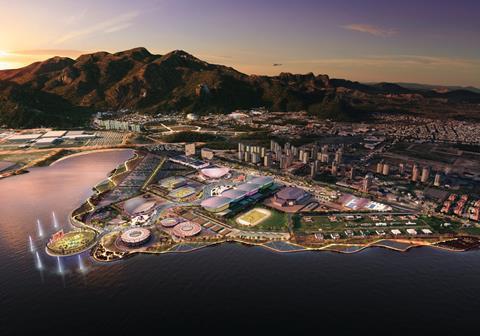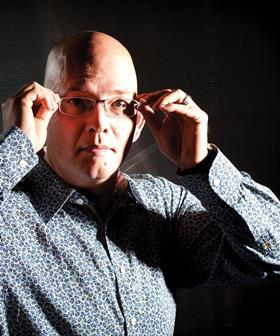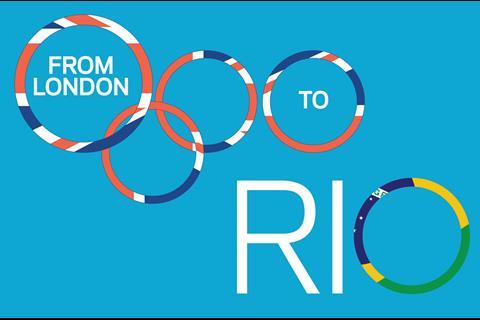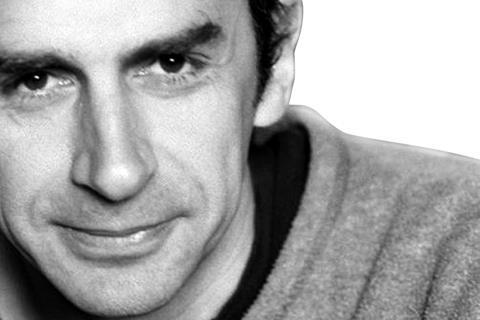For firms fresh from the successful delivery of the London Olympics, there is one obvious next port of call. Emily Wright and Anna Reynolds take a closer look at the opportunities available ahead of Rio 2016

For the last five years, London has been under the watchful eye of the world. Every decision, announcement and milestone related to the delivery of the 2012 Olympics has been monitored, scrutinised and meticulously picked over. For two weeks and two days from 27 July, this global gaze will reach new levels of intensity. Then, on 12 August, everything will change …
The Brazilian government and construction industry know that, for the next four years, Rio de Janeiro will be the most talked about city in the sporting world. They also know that, with a double whammy of major events on the horizon - the World Cup in 2014 as well as the Rio Olympics in 2016 - there is still much work to be done. Concerns have already been raised over World Cup construction work (see pages 28-29) and the natural fear is that a poorly delivered event in 2014 will result in a loss of confidence ahead of the Olympic delivery two years later.
Whatever the challenges, the opportunities arising from two such enormous events are undisputed. They will create £35bn worth of construction work between now and 2016, in addition to 12,265 infrastructure projects requiring an $800bn (£503bn) investment from the Brazilian government.
The good news for UK firms is that, with so much of the guidance needed about the delivery of major sporting events and accompanying infrastructure, the door is open for the firms that built London 2012 to follow in the footsteps of companies like Aecom and Wilkinson Eyre - which are already working on Rio’s Olympic park. But with the London-to-Rio handover fast approaching, they’ll need to act fast …
‘Already part way there’
Marcio Fortes, president the Olympic Public Authority, the public company responsible for the co-ordination of the Games, insists that Rio is on track to deliver an Olympics on time, on budget and with a strong legacy plan to follow. He says: “Forty-seven per cent of the Olympic venues have already been made following the 2007 Pan American Games in Rio and the Military Games last year. Many of the venues have been restored; airports had to be built to accommodate these big events so Rio is already part way there.”
The Games will be held over four locations in the city with the main Olympic park - masterplanned by Aecom - stretching over a 121-hectar site in Barra da Tijuca in the south-west of the city. The Olympic park will be centrally located in relation to the other sporting arenas in Deodoro, Maracanã and Copacabana. It will also be the largest new development built exclusively for the Games.
In the historic port area there are plans for massive regeneration to create a ‘media hub’ - almost like the London Docklands
Nigel Peters, British Expertise
Work on the park will start in the upcoming months after a PPP consortium to deliver it was announced last month. It is understood the winning consortium is already in talks with a UK consultant about the development. The Parque dos Atletas (or athletes’ park, an $18m, 1.3 ft2 space for competitors to relax in between events) was updated in August 2011 after being delivered originally for the 2007 Pan American Games.
And while there is rising criticism over the delivery of the 2014 World Cup, the counter argument is that, whatever happens, it will force Brazil to deliver much of the sporting facilities over two years before the Olympics, including 12 stadiums and necessary transport upgrades such as the four Bus Rapid Transit Lines (BRTs), or express corridors. Work on the Transoeste (56 km) and Transcarioca (41 km) BRTs is already under way.
Bill Hanway, Aecom’s executive director of operations, planning design + development, is working on the Rio masterplan. He says: “There has been a lot of negative press around the World Cup but so much of the success of the Olympics relies on that transport and infrastructure that will be delivered for the 2014 Games so it really accelerates us in terms of what we’re moving towards for 2016.”

Rio calling
Nigel Peters, director at British Expertise, insists that there is a wealth of opportunity in Brazil for UK firms: “We went out to Rio in February with 17 companies from the UK represented by delegates working on London 2012. The biggest British success has been for Aecom, which will be designing the Olympic park. Arup is giving sustainability advice to the Olympic village and negotiating with Brazilian contractors.
“On the whole, it is looking very positive for UK firms. There are clusters of Olympic venues around the city; in the North in Deodora there is a mini Olympic park where there are plans for BMX and shooting. UK design companies are negotiating with the team in Rio about selling their temporary water polo and basketball stadiums.”
And Andrew Bacchus, head of global sports projects at UK Trade & Investment (UKTI) points to possible work on the Olympic park itself: “In the near future we will be targeting the PPP consortium on the Olympic park and will bring them over to the UK to hopefully get some more UK firms working on the main Olympic site in Rio.”
UKTI reported that there were also opportunities for UK companies on temporary/modular structures, where there is no great expertise in Brazil; infrastructure, as the country prepares for the massive upgrade in urban transportation in Rio; and sustainability.
Aecom’s Hanway says: “The Brazilians are looking to deliver world-class levels of sustainability so there is interest in these skills. There is also a long history of natural public spaces but not landscape architecture, so there is a need for expertise combining landscape and park design.”
Then there is the infrastructure work - all 12,265 projects of it. Peters notes some of the work available in Rio: “There will be the upgrading of an urban bus rapid transit project and sewage waste throughout the city. In the historic port area there are plans for massive regeneration to create a ‘media hub’ - almost like the London Docklands.”And again, there are more specific opportunities on the Olympic park itself. Bacchus says: “Work needs to be done in Barra - the location for the Olympic village - where the land is unstable and the water table needs engineering. This in particular may need UK expertise. “
Breaking into the market
The window into Brazil may be ajar for UK firms, but climbing through it is not without difficulties. There is still little clarity around the different organisations involved in the delivery of the Games. The UKTI reports that the Brazilian Olympic organisational structure has been “slow to emerge” - particularly on the construction side. London’s Olympic Delivery Authority is basically replaced by organisations at federal, state and city level with most of the departments themselves not 100% sure of their roles.
In terms of getting involved from a UK base, Aecom’s Hanway has some words of warning: “The tax burden for UK firms working in Rio based in UK is pretty substantial. The advantage for Aecom is that we have had offices in Rio and São Paolo for nearly 15 years now and a long standing registered company. Not everyone has that to fall back on.”
He suggest that firms should be forming relationships with Brazilian firms.
The other challenge, of course, is just the sheer scale of the undertaking. Bernardo Carvalho, director of communication at the Municipal Olympic Company, the Brazilian equivalent to LOCOG, describes it as no less than “transforming the city”. But the good news is that this all tends to lead back to a requirement for UK expertise.
Carvalho says: “Delivering both the World Cup and the Olympics on time and on budget is going to be tough. Transportation is our biggest challenge; basically we have to transform the city. We have had many talks with Transport for London for advice. Rio is used to having 13-15% of the population using transport - during the Olympics we are expecting this to increase to 60%.”
The question is, how many UK firms are going to be sharing the ride?
‘EVERY TIME WE DO AN OLYMPICS THERE IS PRESSURE”

Bill Hanway is executive director of operations, planning design and development at AECOM. He is overseeing the firm’s masterplan of the Rio 2016 Olympics. Aecom, along with Wilkinson Eyre and Rio-based DG Architecture, beat 59 other teams to win the role after a presentation that was limited to just five A1 boards and one three-minute video. The firm was also heavily involved in the masterplan for London 2012. Here, Hanway gives an update on progress from Rio and lessons learned from the UK …
How far along is planning and construction in Brazil?
In terms of laying out a strategy, it’s similar to how we approached the London Games. We are drawing up Games, transformation and legacy plans as part of one masterplan for the main Olympic park. For example, when we’re planning, say, infrastructure capacity, we’re looking at what is needed for the Games but also long-term goals. So we’re laying out the road networks and venue locations in such a way that we ensure the permanent venues are in appropriate locations for the long term. We’re also looking at linking public transport and how these links will work for the next 20-30 years at least.
What is the idea behind the Rio Olympic park masterplan - what will be so exciting about it?
The main Olympic park site is spectacular. It’s a triangular space with water on either side. Apart from that we’ll be creating an urban centre including housing, sports facilities and parkland for the developing community. During Games time, at the southern peninsula of the site we are planning an entertainment area for around 15,000 people to watch the events on big screens. But after the event we plan for it return to its natural forest state and use it as an educational tool almost.
London 2012 is likely to be a tough act to follow in terms of planning, construction and delivery. Is Rio up to the challenge?
Every time we do an Olympics there is pressure. I see Rio as being a balance between Beijing and London. In Beijing, it was all about the party and the celebration of China’s emergence as a huge, booming economy. But there wasn’t much thought put into legacy and some of the venues are now quite under-used. London has got a pretty powerful balance between having permanent venues and having available space for legacy development through the clever use of temporary venues. With Rio, we will be celebrating Brazil as an emerging world power as well as making sure there is a strong legacy plan in place.
What are the main challenges in the lead-up to the Rio Olympics?
Labour costs are high and that is an issue with so much construction work going on at the moment. And the shape of the site is difficult in terms of transportation, which is why we’re focusing so much on that early on. We also have to use some venues from the Pan American Games to best use these venues legacy-wise.
What about the controversy surrounding the 2014 World Cup. Might this shake confidence just two years ahead of the Olympics?
I think we’ll see challenges in 2014, perhaps with airports and logistics, but I firmly believe that the venues themselves will be ready and much of the public transport will be ready.
When people talk about a lack of legacy post-2014, we have to remember the World Cup is very much focused on individual events, so just getting people to the stadiums to watch the events is important. Legacy is more key to the Olympics thanks to the size of sites.
What are the three key lessons you have learned from London?
First, make sure there is complete engagement with the stakeholders and local communities to ensure everything is done in conjunction with those most likely to use facilities.
Second, understand all the extraordinary items during design. For example, make sure security concepts and transport issues are built into the design early on.
And finally, there must be clear leadership from government and city officials all the way down to the organising committees.





























No comments yet